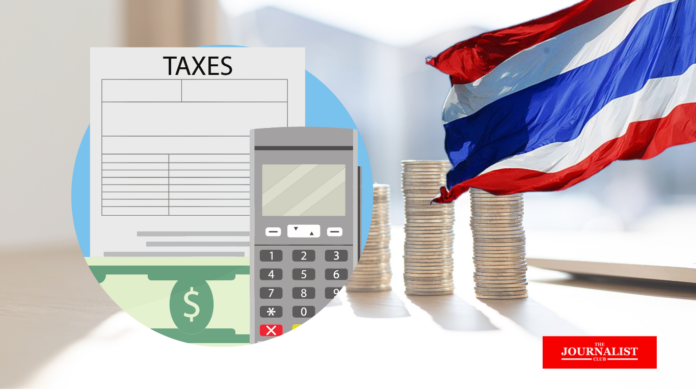

Tax compliance among Thai Citizens Thailand’s personal income tax (PIT) collection faces significant challenges in terms of effectiveness and inclusivity.
With over half of Thai workers engaged in informal employment, verifying incomes becomes a loophole, creating opportunities for some to evade tax obligations. However, not all cases stem from deliberate intent but from other reasons, such as lacking sufficient knowledge about filing procedures.

Secretary general to the National Economic and Social Development Council (NESDC) Danucha Pichayanan said the agency, in collaboration with the Research Centre for Social and Business Development Co., Ltd.,
conducted a survey and study of public attitudes towardtax compliance among individuals aged 25 and above.
Findings revealed that only 35.7 percent of respondents submittedtax forms, primarily those with occupations that offer a consistent salary.
Some Thais are unaware paying taxes is a legal
Moreover, over 80.8 percent reported having adequate financial resources for their expenses. Conversely, 50.5 percent of respondents who met the criteria for filing failed to submit. These groups of individuals tend to have high school
or vocational certificate education levels and reliance on informal employment, with an average monthly income of 12,115 baht. More than half of this group lives paycheck to paycheck.
In terms of understanding PIT, it has been found that Thai people have a low level of knowledge. Some are unaware that submitting tax returns and paying taxes is a legal.
Over 65.6 percent of respondents were unaware that filing a form does not necessarily result in a tax payment. Furthermore, more than half of the respondents were unaware of thetax exemption
for individuals with a net income not exceeding 150,000 baht.
In terms of perceptions of fairness in PIT collection,
the majority of Thai citizens perceive the fairness of the existing income tax collection system as moderate to low,
primarily due to shortcomings in the inspection process.
Some high-income earners avoid taxation
Consequently, some individuals who meet the income criteria opt not to file tax forms,
while certain high-income earners exploit legal loopholes to avoid taxation.
Moreover, the minimum income threshold subject to taxation fails to align with the current cost of living. In terms of the willingness of Thai individuals to file and fulfill their tax obligations,
approximately 70 percent of respondents expressed readiness to comply if their income met the criteria or they could receive more or better welfare.
However, one in three respondents disagreed with the notion of mandating tax form submission for all income earners without a minimum income threshold in place.
Regarding the motivating factors for Thai individuals to file tax forms, individuals who had previously filed forms primarily valued the convenience of the process.
In contrast, the non-filers with incomes that meet the criteria prefer to avoid the hassle of reviewing past tax records and provide additional documentation. Regarding the tax incentives, a significant motivating factor for tax payment was having more
income than expenses, especially among the non-filers whose income met the criteria. Conversely, those who complied emphasized on allocation of state welfare.
Need to enhance the efficiency of income tax collection
Mr Danucha said in order to enhance the efficiency of personal income tax collection in Thailand, several actions may be necessary:
- Establishing accurate knowledge and understanding about PIT among the public, starting from childhood and continuing through regular communication using easily understandable methods and formats.
- Creating awareness of tax utilization and its benefits to individuals, by publicizing policy outcomes and welfare provisions, implementing policies with tangible results, and communicating the financial and fiscal condition of the country.
- Promoting voluntary tax compliance by exempting or reducing various penalties, as well as implementing other incentive measures.
- Enforcing strict inspections and penalties for those with illicit activities, by strengthening the efficiency of the inspection system There could also be specific penalties for those who intentionally commit violations to create a deterrent effect; and
- Facilitating tax filers by developing systems capable of handling a broader range of income data from various sources, as well as providing adequate personnel support and assistance throughout the filing process.
Additionally, the government should prioritize fostering economic growth and ensuring sufficient income for individuals to cultivate readiness
and comfort in tax compliance. This will ultimately expand the tax base,
which in turn yields the long-term benefits of future policy design from more comprehensive databases.
Related News : What to Do When Thailand Becomes a Single Society?










